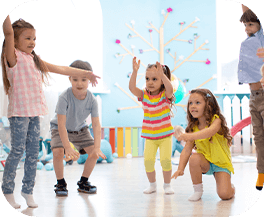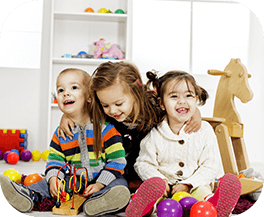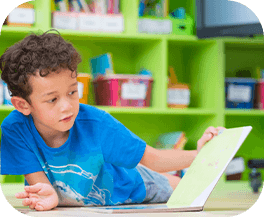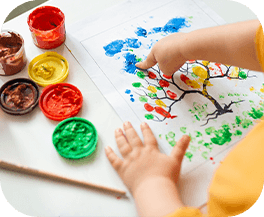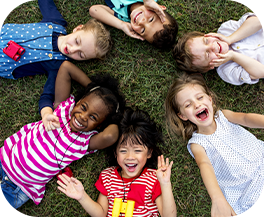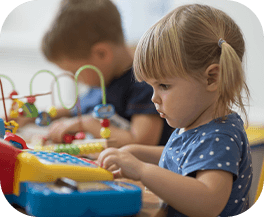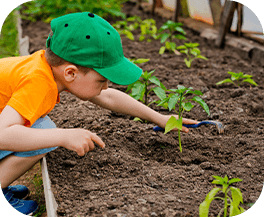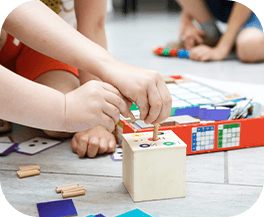Our Exploring Voyagers program has been designed to inspire engagement with the natural and physical world which surrounds us. Children are encouraged to immerse themselves in nature and play based learning whilst involving their five senses (sight, touch, smell, taste and hearing). This in turn inspires a deeper understanding of the world, as well as giving children a basic understanding of weather, geography and science. These outcomes are achieved through sensory play in addition to theoretical learning, with age-appropriate learning experiences developed by our fully qualified educators.
With Science, Technology, Engineering and Maths (STEM) skills in high demand, children’s curiosity and investigative skills are nurtured to prepare them for the future. Problem solving and critical thinking skills are first formed in early-childhood, and by developing enthusiasm for scientific discovery children are equipped with skills they will utilise throughout their school years and beyond. Whether it’s something as simple as fixing a broken piece of equipment or building their favourite LEGO creation, the problem-solving skills gained throughout STEM learning will prove invaluable.
Age-appropriate hands-on learning activities to support curiosity, questioning, investigation and discovery include:
- Loose parts play (cardboard boxes, buttons, foil, paper plates etc.)
- Building LEGO
- Sensory play using paint, sand, Play-Doh and other media
- Growing herbs and vegetables
- Basic science experiments
- Touching, tasting and cooking food
- Daily discussions on weather and the schedule for each day of the week
- Animal incursions
- Learning about sustainability
Collaboration towards a common goal is also encouraged, with science experiments offering every child the opportunity to make their voice heard and witness the impact of their choices. Our early education science program introduces children to concepts including matter and density, solubility and chemical reactions with fun experiments such as slime and goo creation and making casein plastic using milk and vinegar. The role of animals and plants is also discovered through discussions about pets, passing around small specimens and fossils, farm animal incursions and more.
As part of our daily routine, educators and children sit down to discuss the weather, the daily/weekly schedule and share news stories. There are also plenty of opportunities for sensory and tactile developments, with expansive sand pits and an array of specimens, plants and nature-toys available for use. Our educators also try to instil an understanding of sustainability and how individual actions can affect the world around us. Children participate in recycling of materials, growing herbs/vegetables and discussions about eco-sustainability.

